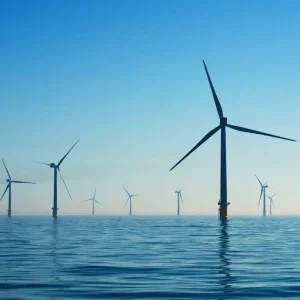Belarus is returning to Russia the reactor pressure vessel (RPV) dropped during installation work in August at unit 1 of the Belarus NPP, Mikhail Filimonov, Director General of the State Enterprise Belarus NPP Company (BNPPC), told reporters on the sidelines of the 60th session of the IAEA General Conference in Vienna. The head of Russian state nuclear corporation Rosatom, Sergei Kiriyenko, told journalists in Vienna on 28 September that Russia's readiness to replace the RPV reflects the fact this is a public acceptance matter rather than a technological concern. "We are sympathetic to the position of our Belarusian colleagues," he said, noting that the public in Belarus have a "more sceptical attitude" towards nuclear energy because of the Chernobyl accident in Ukraine in 1986.
Rosatom subsidiaries OKB Gidropress and Atomstroyexport inspected the RPV and submitted the results project customer BNPPC and to regulator Gosatomnadzor, the Nuclear and Radiation Safety Department of the Belarusian Emergencies Ministry. Kiriyenko confirmed the RPV was "absolutely functional, and can be used on other projects". He added that its replacement incurs "no additional costs" for the customer, other than for its transport to the site. "We see no problems and the project is continuing," he said.
Earlier reports said that, to speed up the process a replacement RPV is to be transported to Belarus from the second reactor unit at Russia’s Leningrad NPP Phase two. However, the delay will shift the date for operation of Belarus-1 by 10-12 months to 2019. Meanwhile, Rosatom subsidiary AEM-Technology, said in May that it had completed assembly of the RPV for Belarus unit 2, which is scheduled for operation in July 2020.
During the Vienna conference, Belarus and the IAEA discussed details of the planned Site and External Events Design (SEED) mission that will evaluate the construction site of the Belarusian nuclear power plant (BelNPP), Belarus Deputy Energy Minister Mikhail Mikhadyuk told reporters. “The SEED mission will assess the sustainability of our project taking into account the chosen construction site. The IAEA delegation will be comprised of six experts and is expected to visit Belarus in December. Meanwhile, the IAEA Integrated Regulatory Review Service (IRRS) will undertake a mission to Belarus in October. The experts will conduct a comprehensive assessment of the regulatory infrastructure.
Specialists from the Czech Republic have meanwhile agreed to participate in stress tests at the Belarus NPP, which are to be conducted by Russian Design and Research Institute of Energy Technology Atomproekt. The stress testing procedure will evaluate the plant's resilience to combinations of earthquakes, floods, extreme weather phenomena, and other kinds of external impact. Belarus will inform the European Commission of the results.






